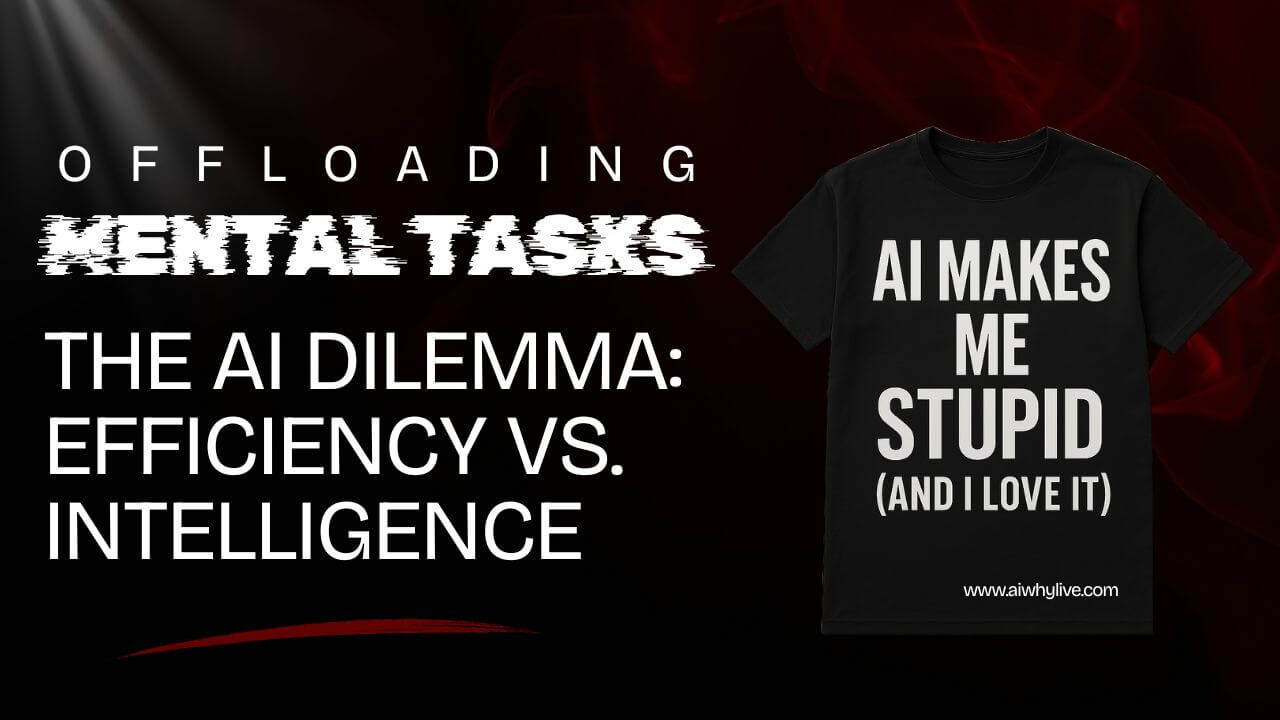In an era when AI can regurgitate encyclopedias on demand, we risk confusing elaborate answers with true understanding. We offload thinking to machines—cognitive offloading—then panic we’re becoming “AI-stupid” (as I confessed in “AI Makes Me Stupid—and I Love It”). It’s easy to “learn” everything at machine pace—yet hard to actually “know” what matters. This article dives into why concise clarity trumps verbose overwhelm, and how to turn fleeting AI-fed lessons into real, lasting mastery.
1. Learning vs Knowing: What’s the Difference?
Learning (noun): the acquisition of knowledge or skills through study, experience, or teaching
- Gathering new information—factual, conceptual, procedural
- Often passive: skimming articles, binge-listening, endless note-taking
- Feels productive, but can lack depth
Knowing (verb): being aware of something through observation, inquiry, or information; having information or understanding
- Internalizing insights until you can apply, teach, or adapt them
- Active: summarization, recall, problem-solving without prompts
- Feels like muscle memory for the mind
AI excels at “learning” for us—fetching facts, summarizing tomes, generating endless threads. But without intentional practice, we offload so much that we fear we’ll lose our own expertise. That’s the trap of cognitive offloading—and the root of AI-induced stupidity anxiety.
2. The Cost of Verbosity
When AI answers stretch beyond what you need, three pitfalls emerge:
- Cognitive Overload & Offloading: You hand over thinking to AI and then drown in its output—your brain never engages deeply.
- Time Drain: Hunting for the kernel of truth amidst paragraphs slows you down, feeding fear you can’t keep up.
- False Confidence: You feel informed, not competent—until real challenges surface and you realize you’re “knower-poor.”
Verbose AI feels like insurance against ignorance, but it often amplifies the very fear it promises to solve.
3. Brevity Strategies for Real Knowing
To convert AI-fed learning into genuine knowing, and to reclaim your cognitive bandwidth:
- Micro-Summaries: After each AI response, write a one-sentence takeaway to force active engagement.
- Active Recall Quiz yourself: “Without looking, can I explain this concept?” This fights off offloading inertia.
- Spaced Repetition: Revisit key points days later—AI flashcards can automate this to cement true memory.
- Teach Back: Explain to a peer or record a 60-second video—if you can teach it, you truly know it.
- Prompt Pruning Ask AI: “Give me the TL;DR,” “List three bullet points,” or “Explain in one analogy”—demand the essence.
These tactics shift you from passive learner to active knower and silence the fear of AI-induced stupidity.
4. AI as a Tutor, Not a Crutch
Treat AI like an interactive tutor you control, not a brain replacement:
- Custom Depth Controls: Use prompts like “Explain in 50 words” or “Give me one metaphor.”
- Role-Play Mode: “Pretend I know nothing—what’s the one thing you’d teach me first?”
- Error-Injection Drills: Ask AI to quiz you with false statements you must correct, forcing your mind back in the game.
- Challenge-First: “Here’s my partial solution—find the mistake in 5 lines max.”
By guiding AI to serve your knowing, you curb the tendency to offload and protect yourself from becoming a bystander in your own learning.
🔥 Final Thought
Information is infinite; understanding is finite. We win when we demand brevity—so our minds can engage, apply, and innovate. Stop racing for raw data. Start racing for real knowledge. After all, in a world of talkative machines, the sharpest edge belongs to the distilled mind. And remember: the fear of AI making you “stupid” isn’t a verdict—it’s a call to refine how you learn, know, and grow.







